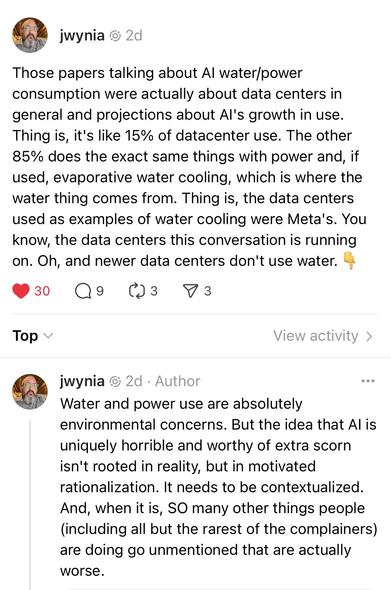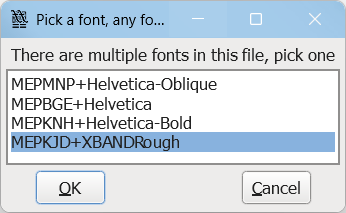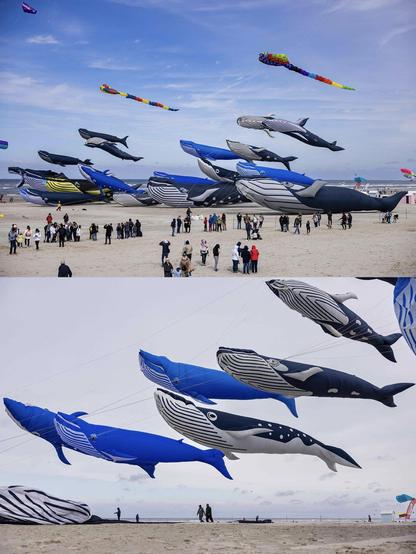
J Edward Wynia (@jwynia) on Threads
Those papers talking about AI water/power consumption were actually about data centers in general and projections about AI's growth in use. Thing is, it's like 15% of datacenter use. The other 85% does the exact same things with power and, if used, evaporative water cooling, which is where the water thing comes from. Thing is, the data centers used as examples of water cooling were Meta's. You know, the data centers this conversation is running on. Oh, and newer data centers don't use water.👇



